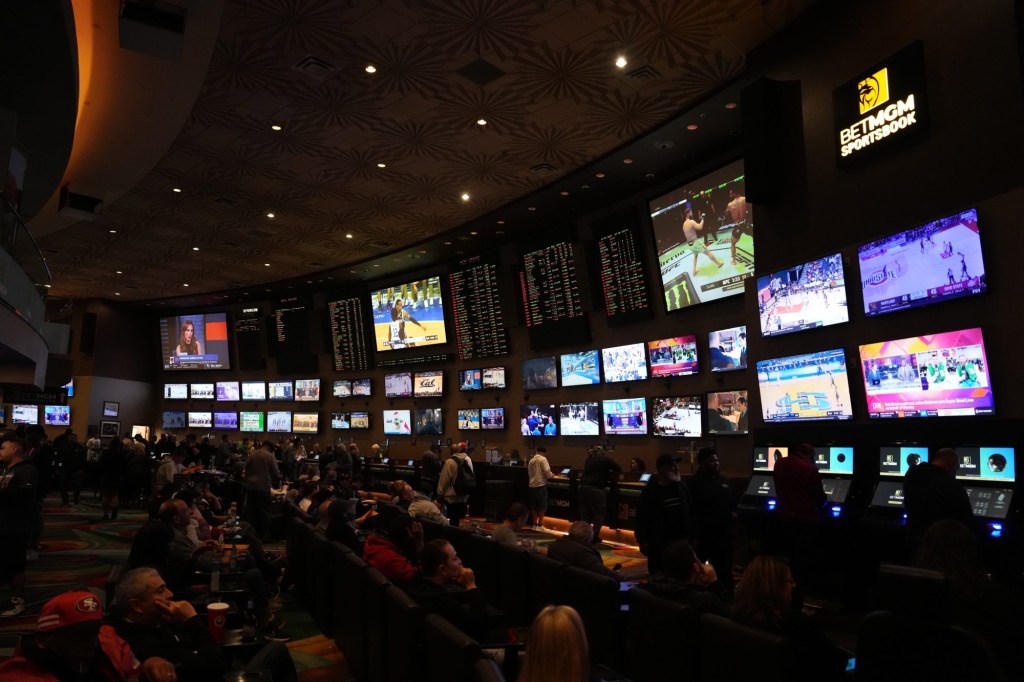The original founder and face of FanDuel has spent the years since FanDuel sold to Irish betting giant PaddyPower suing the private equity firms that led the sale for what he and other early employees and shareholders believe was a raw deal for them.
Now the PE firms are firing back.
Nigel Eccles says he was confused to receive a legal letter this week that attempts to force him into arbitration for his public claims that shareholders of the company were cheated by the company’s 2018 sale to a European bookmaker now called Flutter Entertainment.
The long-running legal dispute stems from the 2018 sale of 61% of FanDuel to Paddy Power Betfair, which later rebranded to Flutter Entertainment. The transaction valued FanDuel’s stake in the merged business at $559 million, which just so happened to be the exact price at which preferred shareholders—like private equity firms KKR & Co. and Shamrock Capital Advisors— would get all the equity in any merger or acquisition event, according to the bylaws of the pre-merger FanDuel entity.
“None of us has said we weren’t supportive of the deal,” FanDuel co-founder Nigel Eccles tells Front Office Sports. “We say the merger was great, it helped make FanDuel the success it is today. All we’re saying is the value of the merger was stolen by preferred shareholders. And we told them that before they closed the deal.”
Two years after that deal, Flutter Entertainment bought the preferred shareholders out in a $4.2 billion transaction. At the heart of the lawsuit led by Eccles is a claim that the 2018 valuation was artificially low in order to shaft the early shareholders.
Eccles was surprised by a Monday letter filed to the Supreme Court of the state of New York by an attorney for FanDuel, which said the defendants are initiating arbitration proceedings against Eccles.
The letter from KKR and Shamrock says Eccles “has repeatedly and flagrantly” breached a 2017 termination agreement by “actively recruiting and assisting other plaintiffs” in litigation. The defendants are seeking $8 million, as well as a ruling that Eccles must stop helping other plaintiffs in the legal fight.
The termination agreement, which Eccles signed in November 2017, was also filed to the court as an exhibit. It does feature a clause under which Eccles agreed not to “encourage, counsel or assist” attorneys or others in any resulting disputes. But the separation agreement was signed before the 2018 transaction at the center of the lawsuit.
“I settled with regard to things that had happened to date,” he said. “I didn’t agree to never sue them over anything, ever.”
Eccles has for years been fighting this legal battle—alongside more than a hundred early investors and employees—claiming that board members controlled by the PE firms “secured for themselves and other preferred shareholders 100% of FanDuel’s equity in the new merged company along with the massive return it represented.”
In fact, Eccles originally sued in Scotland before re-filing in New York in 2020. The suit seeks a jury trial with the aim of netting more than $500,000 in compensatory damages, plus unspecified punitive damages and “disgorgement of Defendants’ ill-gotten gains from having erased the interest of FanDuel ordinary shareholders,” plus interest. Last year, the New York Court of Appeals ruled the suit could proceed. Eccles says it’s notable that the defendants have been fighting the lawsuit in court for years, only to now push for arbitration with a letter that is primarily focused on his efforts to help other shareholders.
“They seem to have accepted that I can sue, but have taken issue with other people suing,” he tells Front Office Sports.
Eccles’s 2017 termination came amid turbulent times for FanDuel. The company struggled financially before the U.S. Supreme Court in 2018 struck down the Professional and Amateur Sports Protection Act, which had effectively banned sports betting outside Nevada and a handful of states with sports lotteries.
In the years since that law was repealed, sports betting has exploded in the U.S., enabling companies like FanDuel and DraftKings to grow into betting behemoths. Currently, 39 states and Washington, D.C., have legalized some form of sports betting.
KKR and FanDuel declined to comment. A representative for Shamrock Capital did not immediately respond to a request for comment.

















